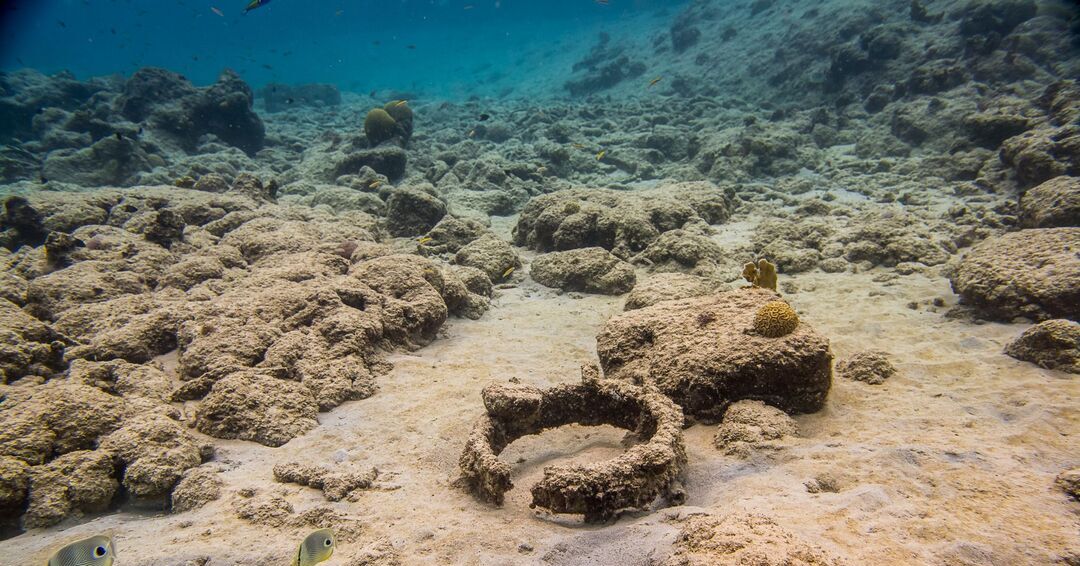Project title: Translating field-based larval propagation to the Western Indian Ocean
Project lead: Dr. Margaret Miller
Co-applicants: Mr. Bernardo Nacimiento, Dr. Pramod Kumar Chumun
Countries involved: Mauritius, USA
Takes place: Mauritius (Africa/Indian Ocean)
Supporting institutions: SECORE International (USA), Odysseo Oceanarium (Mauritius), ECOSUD (Mauritius)
Total budget: USD $1,486,296
Duration: September 2024 – August 2027
Project overview
The coral reefs of the Indian Ocean, in island nations like Mauritius, are highly vulnerable to climate change and other environmental disasters. The devastating impacts of events like oil spills and ship groundings have further endangered these critical habitats. Over the past two decades, human populations in the Indian Ocean region have grown by 71%, with many people relying heavily on coral reefs for their livelihoods. Sustainable coral restoration is crucial for the future of these communities. While there has been a growing interest in coral gardening in the region, current efforts are primarily based on coral fragmentation. However, coral breeding and larval propagation—a more scalable and sustainable approach—remain largely unexplored in Mauritius and other Western Indian Ocean (WIO) nations. This method, which introduces new genetic recombinations, is vital for enhancing the adaptive capacity of restored coral populations. Recent data from the Caribbean’s 2023 mass bleaching event show that corals bred through larval propagation are more resistant to thermal stress, underscoring the importance of this approach for long-term coral restoration. Unfortunately, most WIO nations lack the infrastructure and knowledge needed to implement this technique on a large scale.
This project aims to introduce and expand coral breeding and larval propagation methods in the Western Indian Ocean region, particularly in Mauritius. By adapting and implementing proven techniques from the Caribbean, the project seeks to build local capacity for scalable, cost-effective coral restoration. The initiative will focus on understanding the spawning patterns of coral species in Mauritius and training local stakeholders to use these new methods.
Specific Objectives
- Characterize spawning patterns and early life history traits of coral species in Mauritius by monitoring spawning events and collecting coral gametes.
- Translate, adapt, and implement larval propagation tools/methods in Mauritius: that are accessible and low cost to allow scalability of larval propagation methods.
- Initiate capacity development for coral larval propagation in Mauritius and WIO Nations: by delivering virtual and hands-on training events and providing ongoing support and guidance to local stakeholders in Mauritius and other WIO nations.
How the Objectives Will Be Met
1. Spawning Pattern Characterization:
- Conduct surveillance to identify, document and monitor oral spawning patterns.
- Collect and analyze gametes, focusing on early life history traits such as fertilization, larval behavior, and settlement patterns.
- Quantify larval survivorship and gather slicks—large volumes of coral embryos—during mass spawning events for in situ culture.
- Identify optimal sites for larval culture and outplanting to maximize restoration success.
2. Implementation of Larval Propagation Tools:
- Set up a land-based system for controlled coral spawning and test new larval propagation methods.
- Test and implement various larval propagation devices, such as CRIBS (Coral Rearing In-situ Basins).
- Develop an accessible, low-cost apparatus for gamete collection and larval development that can be used by snorkelers in shallow waters, reducing the need for SCUBA diving.
- Compare the resilience of offspring from different coral species raised in warm shallow lagoon enclosures.
- Set up the manufacturing and distribution of these propagation tools in Mauritius and across the WIO.
3. Capacity Development:
- Offer virtual and hands-on training events focused on coral spawning and larval propagation, including outplanting techniques.
- Establish partnerships with local and regional organizations to enhance the long-term impact of the project.
- Provide ongoing support and guidance to local stakeholders in Mauritius and other WIO nations.
Impact of the Project
The project aims to achieve the following outcomes:
- Implementation of coral larval propagation tools and methods in Mauritius.
- Recruitment of three technician-level staff from the local community.
- Creation and public release of coral spawning prediction calendars for multiple species in Mauritius.
- Identification of optimal sites around Mauritius for coral restoration.
- Development and testing of a novel shallow table nursery apparatus.
- Establishment of formal capacity-building partnerships within Mauritius and the WIO region.
- Guidance for regional partners on initiating coral spawning surveillance.
- Engagement with 20,000 children through education campaigns in collaboration with partners like Odysseo.
Major Highlights
- Public release of coral spawning prediction calendars for multiple species in Mauritius.
- Implementation of coral larval propagation tools and methods, setting a foundation for future projects.
- Establishment of partnerships to support long-term capacity building in the region.
- Significant outreach through educational campaigns impacting 20,000 children.
- Production of a short documentary about the project to raise awareness.
- Active communication and updates on social media.
In 2025:
✅ Documented spawning of 6 new coral genera in Mauritius
✅ Developed and tested a shallow in-situ spawn collection device
✅ Trained 40+ practitioners from 9 WIO countries
Photo: dead corals and rubbish, Curaçao II. Credits: Paul A Selvaggio

